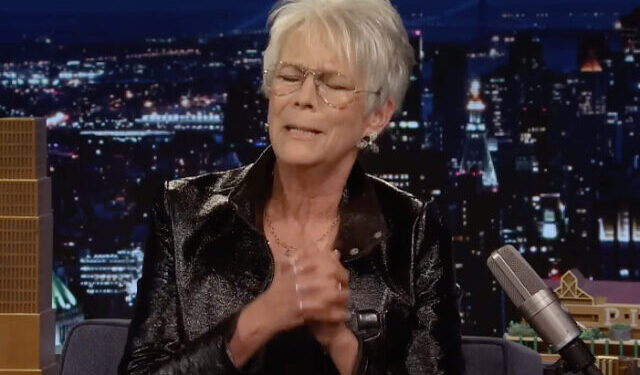When tragedy strikes, sometimes even those who stand on opposite ends of the political spectrum are reminded of the deeper bonds of shared humanity. That became clear this week when actress Jamie Lee Curtis, a figure long associated with progressive Hollywood, broke into tears while reflecting on the assassination of conservative activist Charlie Kirk.
Speaking on Marc Maron’s podcast, Curtis admitted her disagreements with Kirk’s views were fundamental, yet she expressed something striking in today’s climate: empathy. “I disagreed with him on almost every point I ever heard him say, but I believe he was a man of faith, and I hope in that moment when he died, that he felt connected with his faith,” she said. Her words acknowledged not only Kirk’s role as a political figure, but his humanity as a father, a husband, and a believer—roles too often overshadowed when culture reduces individuals to their politics.
Curtis went further, saying: “Even though I find what he, his ideas were abhorrent to me. I still believe he’s a father and a husband and a man of faith. And I hope whatever connection to God means that he felt it.”
Her remarks highlight a truth many in Washington and Hollywood alike prefer to forget: disagreement does not erase dignity. For all the talk of “tolerance” from the cultural elite, it is rare to hear acknowledgment of the faith and family commitments that ground so many conservative leaders. Curtis’s emotion, however unintended, cut through that barrier.
She also lamented how the shocking video of Kirk’s death spread online, comparing it to the endless replaying of the September 11th terrorist attacks. “I know there is video of his assassination. I know people who’ve seen it,” she said. “Yesterday, we watched again these images of those buildings coming down … Today, we as a society are bombarded with imagery. So we don’t know what the longitudinal effects of seeing those towers come down over and over and over and over again, or watching his execution over and over and over again.”
Maron agreed, pointing to America’s growing numbness to violence after decades of saturation. Curtis echoed his concern: “We are inured to them and we are numb to them, but they are in there. We don’t know enough psychologically about what that does. What does that do? That kind of — I don’t ever want to see this footage of this man being shot.”
Charlie Kirk, just 31 years old, was gunned down while speaking at a Turning Point USA event at Utah Valley University. He leaves behind his wife and two young children. His life and his work may have been polarizing to some, but as Curtis’s emotional words remind us, he was more than a headline—he was a man who believed in his mission, loved his family, and lived his faith.
This moment, coming from someone who would never share Kirk’s ideology, underscores an important cultural truth: the nation’s divisions are real, but they need not erase compassion. When even Hollywood voices pause to grieve the loss of a conservative leader, it is a rare recognition that beyond the political battles, what binds Americans together—faith, family, and the value of life—remains stronger than what divides.




















